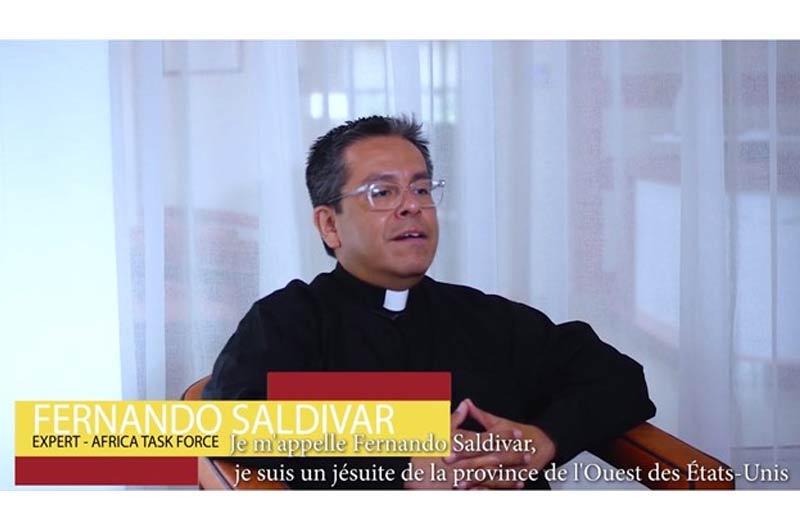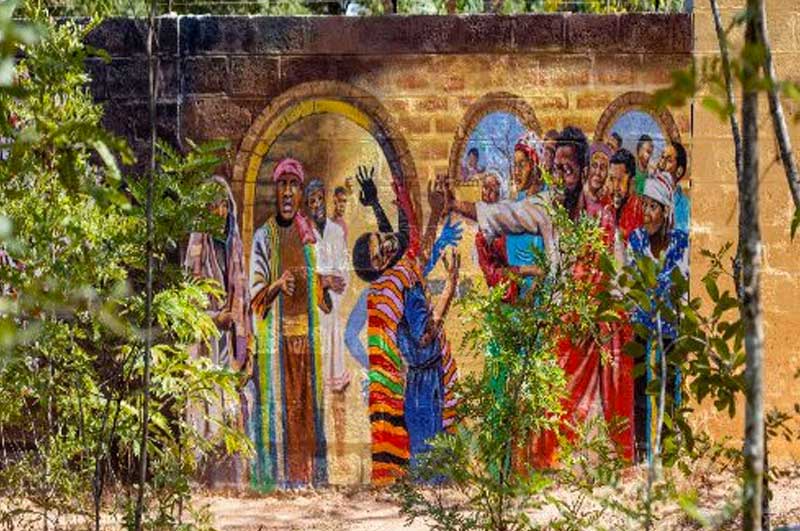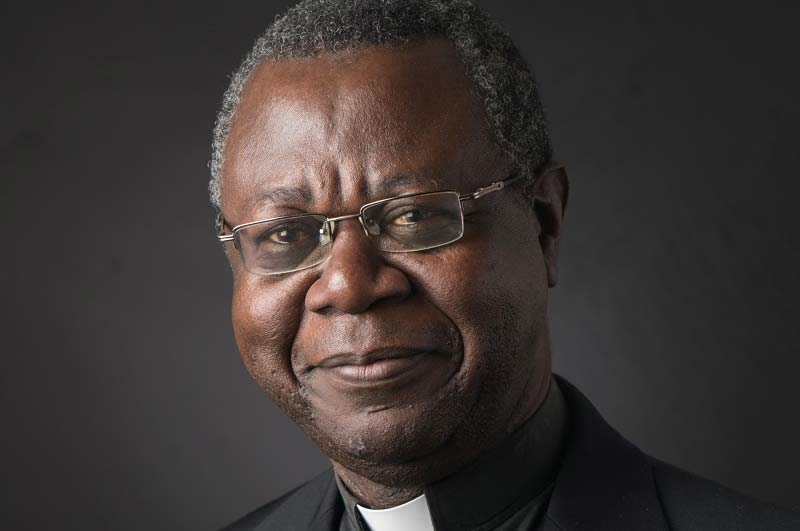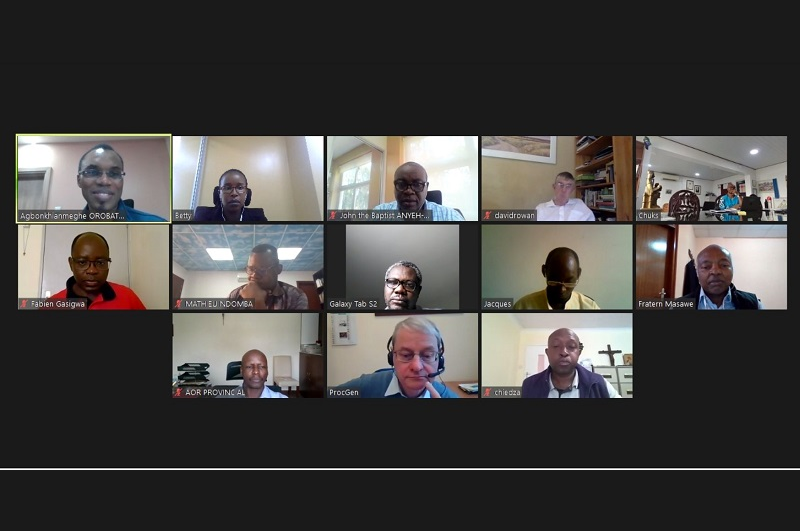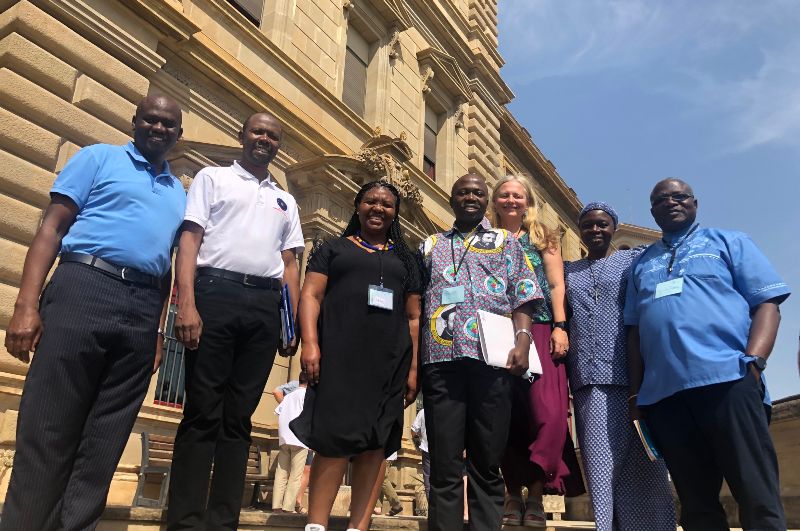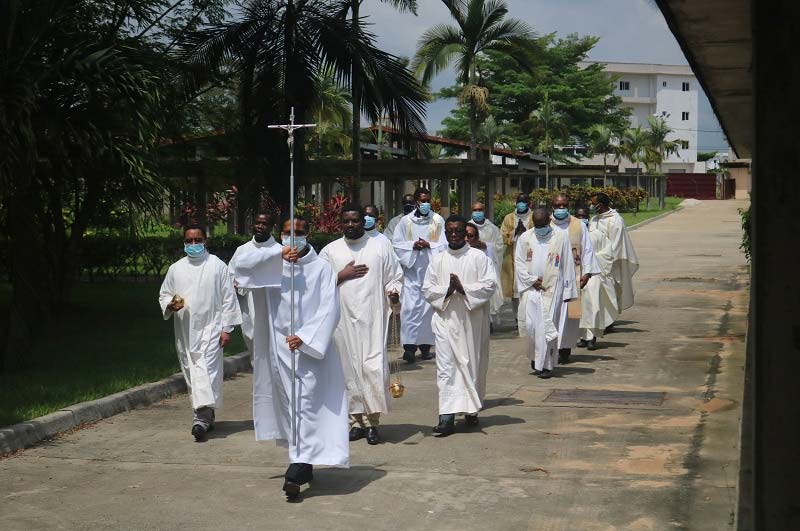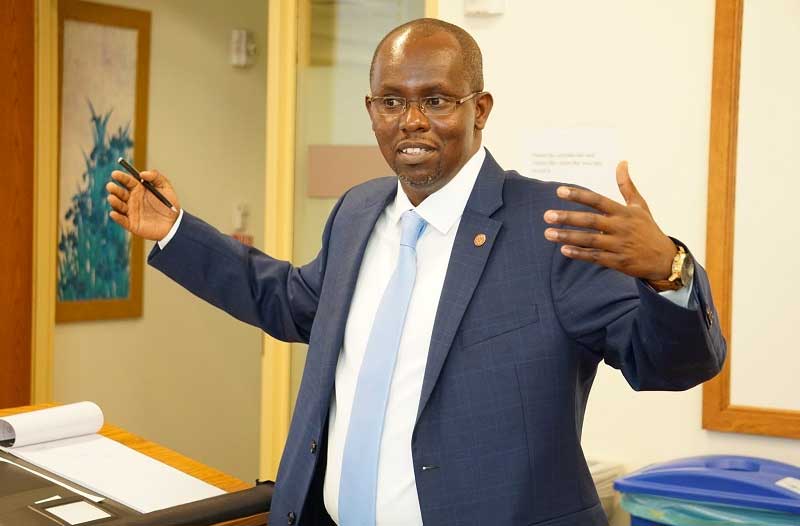


How does one do theology from an appalling history, and thereby arrive at a real and authentic reconciliation of memories and remembrance? Such is the essence of the content of the doctoral thesis of Marcel Uwineza, S.J., of the Region of Rwanda-Burundi, now Marcel Uwineza, S.J., Ph.D.
Since Wednesday, March 18, 2020, the Society of Jesus and the Church have been enriched by a significant contribution to the challenging theme of reconciliation in a post-crisis context. Dr. Uwineza's doctoral dissertation defends his thesis and defies many challenges, starting with that of COVID-19, because, despite the containment and observation measures of social distancing, he was able to defend his thesis online, giving many the opportunity to be able to participate from all over the world. A true victory for science.
The other victory is that of the audacity to think from a painful place, because Rwanda is still far from having healed itself. The wounds of the genocide against the Tutsi and its aftermath are not fully healed and there is need to continue to work toward the reconciliation of all Rwandan sons and daughters.
These are also the issues that led Marcel during the speech he delivered at the United Nations Assembly in the presence of President Paul Kagame in New York on April 12, 2019, commemorating the 25th anniversary of the genocide against the Tutsi. It is also the motivation that led Marcel to organize in Kigali from June 20 to 22, 2019, a major international symposium on “Reinventing Theology in Post-Genocide Rwanda: Challenges and Hopes.”
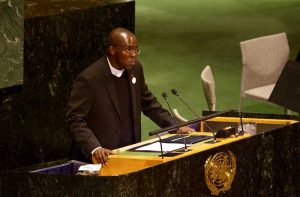
Theology in Rwanda ought to start from the imperative of truth, one that must continue to visit all “regions” of Rwanda’s histories. These regions must also engage those wounds that are still uncovered. Dr. Uwineza strongly affirms that the tragic history of Rwanda remains a challenge to ethics and the task of reconciling memories is rooted in the idea that we have a shared and graced humanity. Dr. Uwineza enters into deep conversation with Thomas Aquinas, Karl Rahner, and Emmanuel Katongole as his three principal interlocutors. The new doctor upholds that “unless it is accepted that belonging to an ethnic community constitutes a punishment deserving capital punishment, nothing justifies the extermination of so many human beings who are victims simply because of being who they were.”
The need for a re-imagined theology in Rwanda is vital. And such a theology must free itself from captivity to a church that, almost from its Rwandan beginnings, has been shaped by bourgeois and class sensitivities and is marked by concern for respectability, material success, mere orthodoxy, a weak or facile understanding of the God of Jesus Christ, and lip-service to his Gospel.
With the title “Reconciling Memories: A Theology from a Place of Wounds” and its subtitle “No Authentic Theology with my Back Turned to Nyamata,” Dr. Uwineza's Doctoral thesis is a reflection in systematic theology and is divided into five main parts. From Rwanda's tragic history that led to the genocide in 1994, Dr. Uwineza proposes to make a theological assessment of “memory work” as an epistemic imperative, emotional and contextual.
According to him, the Church in Rwanda needs self-criticism, in its history and practice (what he calls the “truth imperative”), especially if it wants to contribute significantly to the reconciliation of memories. Analyzing the memory or memories to achieve reconciliation of memories and thus imagine anew the weight of salvation, in a context where genocide and its aftermath live in everyone: such is the ultimate goal of this thesis. No authentic theology is possible in the denial of the violence of history.
Dr. Uwineza takes his inspiration from the German theologian Johann Baptist Metz who, after the genocide of the Jews, said: “Looking upon Auschwitz, it is clear that an adequate separation between systematic theology and historical theology, between truth and history, is not possible.” This conviction deepens the new Doctor’s project, which states forcefully that he could not make a theology “with its back turned to Nyamata,” this church located at the genocide memorial site, in and around which more than 20,000 Tutsis were killed. If then theology must help the Church in its concern for reconciliation of Rwandans, it must rethink itself in the current context and take into account all the broken and healed Rwandan bodies, a re-imagining of humanity, the Church and society in the light of the passion, death, and resurrection of Jesus Christ, for the wounds of the body of Christ must be a particular challenge for the Rwandan people.
The thesis defense was carried out in three main stages for about two hours: the presentation by the Ph.D. candidate, his previous work, and that of his thesis, followed by the interventions of the supervisors, and finally the questions and answers with the online audience.
In his chapter-by-chapter thesis defense, Marcel maintains that, despite past tragedies, Rwanda is a mirror to the world, and its salvation is to be found in the work of memory. Such was the content of the short video broadcast during this phase, raising important questions about the importance of memory and the need for its purification. The "work of memory" that it proposes is therefore an invitation to fight hard against the complexity of Rwanda's wounds. The most important, we would say, is not what we have done, but what we do with what's been done to us. This message of hope is therefore rooted in truth.
Focused on history, on memory, on doctrine and theology, Marcel's thesis posits important issues that also appear as challenges: What processes lead to the annihilation of the others? How to maintain and deepen faith in God in the post-genocide context? How to make a place for the neighbor in post-genocide Rwanda? According to Marcel, one of the original contributions of this project is its analogical formulation of the reconciliation of memories as a phenomenon of osmosis and transformation. One long-term goal is the establishment of a rigorous theological institute that will conduct sustained and serious interdisciplinary research and analysis for the sake of reimagining theology and humanity in post-genocide Rwanda and also serving as a “think tank” for the troubled Great Lakes Region.
Following the presentation, the floor was first given to Prof. Jay Carney, as the first examiner, for his comments and questions. Professor Richard Lennan as second examiner and finally Shawn Copeland, the candidate’s supervisor, before going online for comments, remarks, and questions from the public. It is at the end of this stage that the jury, after a period of consultation, was pleased to proclaim Marcel Uwineza, S.J., Doctor in Systematic Theology, which was followed by a round of hearty applause from the online audience.
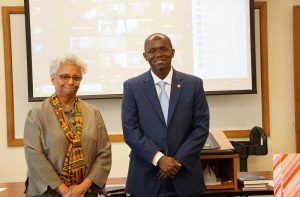 Fr Marcel (right) with Shawn Copeland (left)
Fr Marcel (right) with Shawn Copeland (left)
Wishing Dr. Uwineza Marcel a fruitful mission, and sending him our new congratulations, we also pray for him, that the Lord may continue and help the concret ization of one of the wishes dear to this research, that to see one day the creation of a theological institute that will carry out serious and sustained research and analysis in order to re-imagine theology in the post-genocide Rwanda.
With Marcel our Companion, let us not turn our backs on Nyamata!
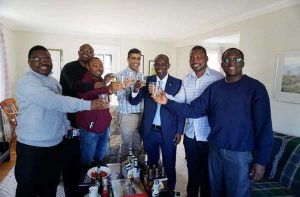
Jesuits from Africa and Madagascar celebrate Fr Marcel's milestone in Boston College
Related Articles
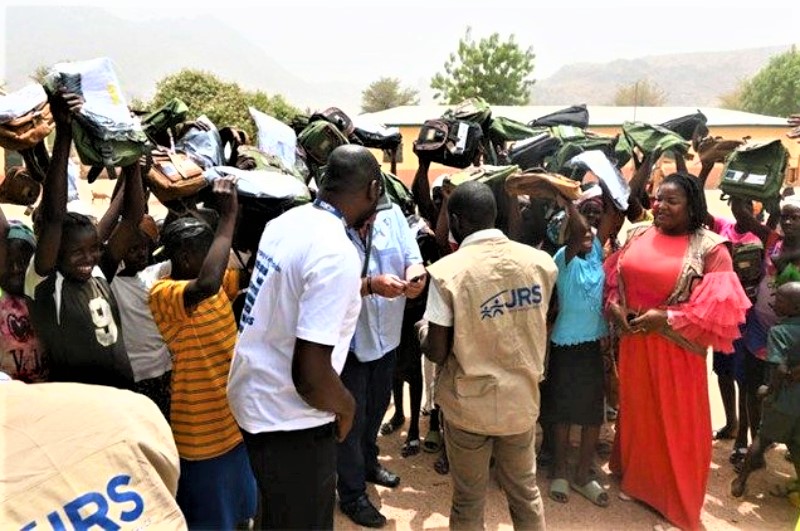

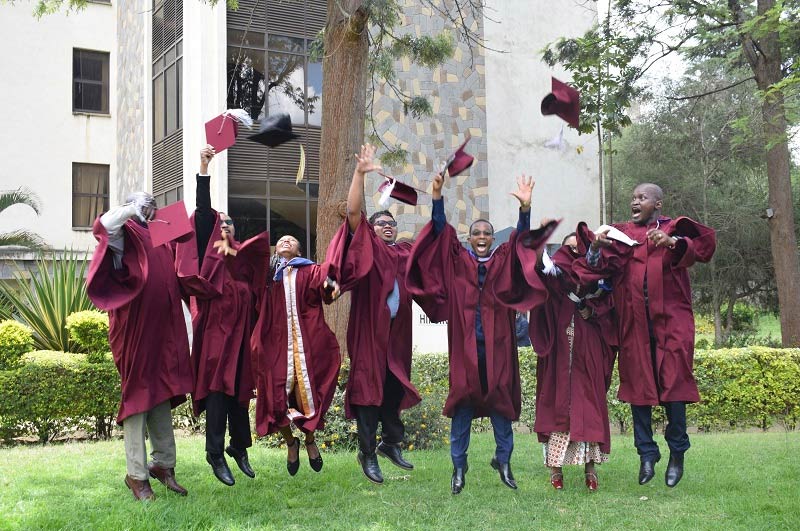
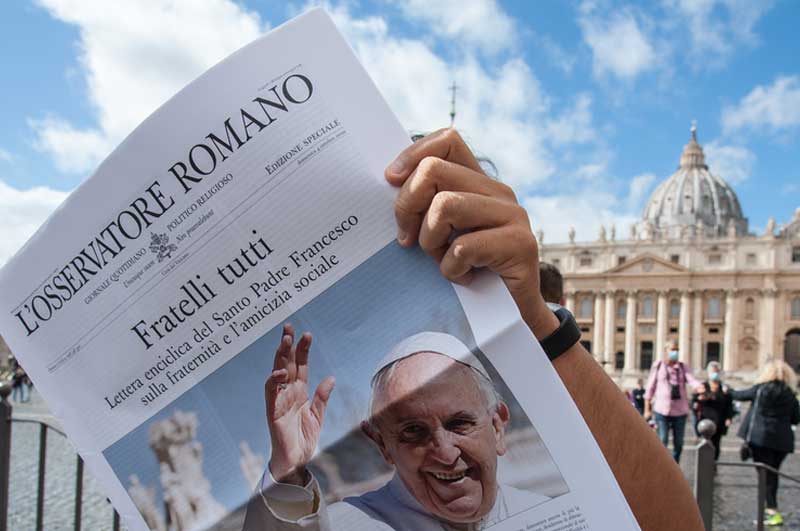
Select Payment Method
Pay by bank transfer
If you wish to make a donation by direct bank transfer please contact Fr Paul Hamill SJ treasurer@jesuits.africa. Fr Paul will get in touch with you about the best method of transfer for you and share account details with you. Donations can be one-off gifts or of any frequency; for example, you might wish to become a regular monthly donor of small amounts; that sort of reliable income can allow for very welcome forward planning in the development of the Society’s works in Africa and Madagascar.
Often it is easier to send a donation to an office within your own country and Fr Paul can advise on how that might be done. In some countries this kind of giving can also be recognised for tax relief and the necessary receipts will be issued.


